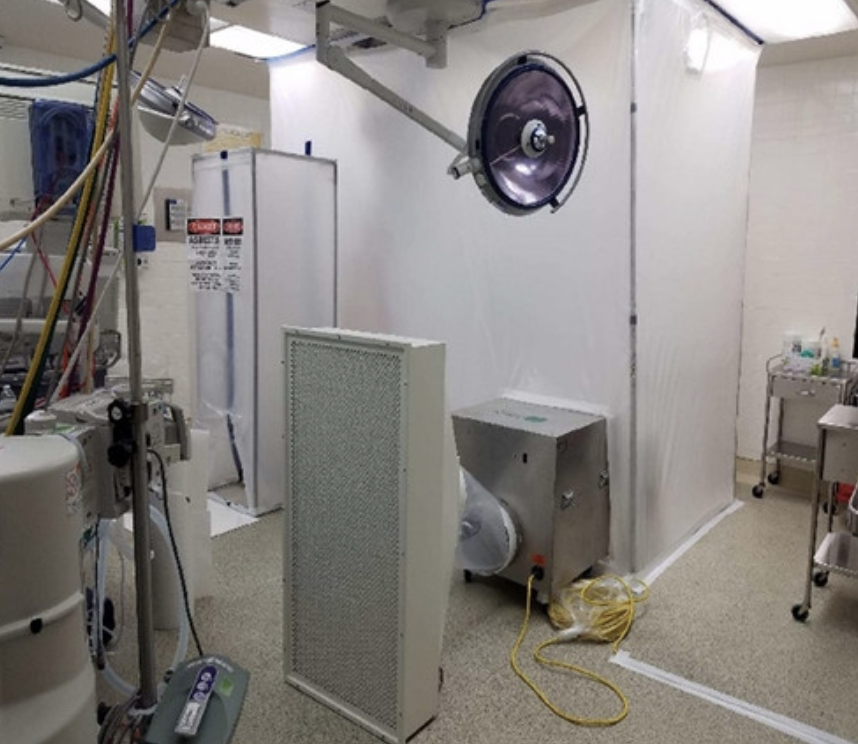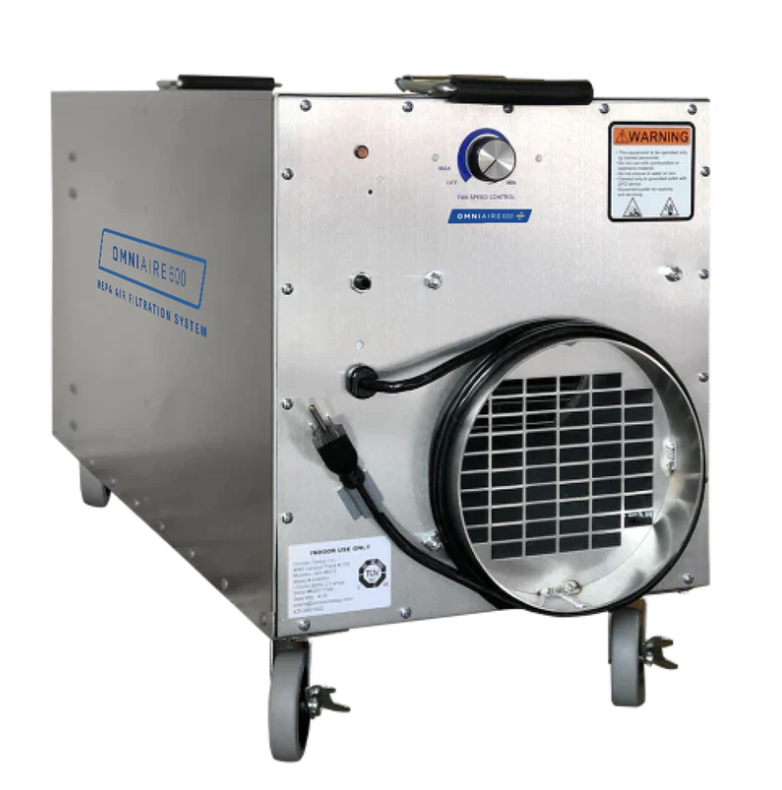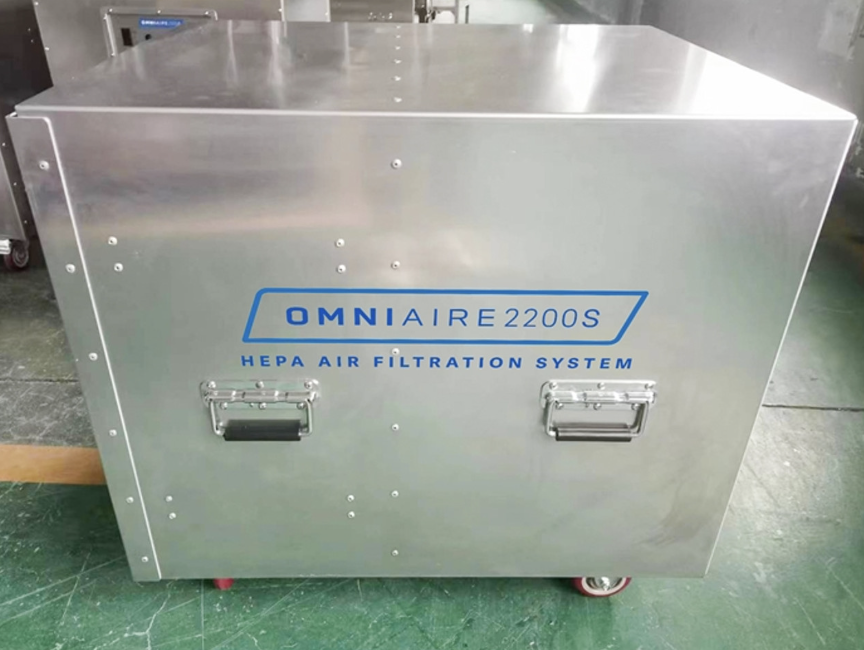Posted by Spycor LLC on Apr 24th 2025

When working in sensitive environments like hospitals, clinics, or other occupied facilities, maintaining air quality and preventing the spread of contaminants is not just important—it’s a matter of health and safety. That’s where ICRA-compliant negative air machines step in. Whether you’re dealing with mold remediation, asbestos removal, or any renovation in a healthcare facility, the right negative air machine (NAM) ensures that contaminated air doesn’t compromise clean areas.
In this in-depth guide, we’ll explore how to choose the best negative air machine specifically for ICRA healthcare construction or work in occupied facilities, while breaking down everything from air change requirements to machine specs, filtration, and usage scenarios.
Why ICRA Compliance Matters
ICRA, or Infection Control Risk Assessment, is a critical set of standards established to reduce the risk of airborne contamination during construction or renovation projects in healthcare settings. These environments are highly sensitive because they often include immunocompromised patients. That’s why every negative air machine used must meet specific standards, especially in filtration performance and containment efficiency.
ICRA guidelines typically demand:
- HEPA filtration (99.97% efficiency for 0.3-micron particles)
- Negative pressure containment
- Proper air exchange rates (ACH)
Spycor.com offers a selection of ICRA-grade negative air machines tailored to meet these requirements.

Top Use Cases for Negative Air Machines in Healthcare Settings
When it comes to protecting patients, staff, and sensitive healthcare environments, ICRA-compliant negative air machines are not just beneficial—they're essential. These machines play a vital role in maintaining air quality and controlling the spread of contaminants during high-risk operations. Below are the most common—and critical—use cases where a negative air machine for healthcare construction and occupied facilities is absolutely necessary:
1. Hospital Renovations
Renovating any section of a hospital, whether it’s a single room or an entire floor, can introduce large amounts of dust, debris, and potential pathogens into the environment. Since these buildings are typically occupied during renovation, using a negative air machine for hospital construction becomes crucial. These machines help:
- Create negative air pressure zones to contain dust and airborne microbes.
- Comply with ICRA Class III and IV protocols.
- Reduce risk of hospital-acquired infections (HAIs) due to particulate exposure.
Without a proper air filtration system, airborne pollutants can easily migrate to sterile areas, putting immunocompromised patients at serious risk.
2. HVAC Maintenance in Occupied Clinics
Routine HVAC servicing in healthcare environments like outpatient clinics or surgical centers can disturb built-up dust, allergens, and mold. A negative air machine for HVAC maintenance in medical settings ensures that these particles are captured and filtered before they become a health hazard.
- Prevents contaminants from circulating through ventilation systems.
- Supports compliance with ICRA risk mitigation strategies.
- Keeps clinic operations uninterrupted during maintenance.
Many facilities now require HEPA-filtered portable negative air machines on-site during HVAC work to ensure containment and patient safety.
3. Patient Room Upgrades
Whether installing new equipment or updating flooring, any construction activity in or near patient care areas demands meticulous infection control. During patient room upgrades, a negative air pressure machine helps:
- Contain construction dust and volatile organic compounds (VOCs).
- Maintain strict infection control barriers.
- Provide protection for nearby occupied rooms, ICU units, or neonatal care.
Even minor updates in a healthcare setting can require Class III or IV ICRA precautions, making the use of negative air machines in patient rooms a regulatory and ethical necessity.
4. Emergency Asbestos or Mold Removal
In the event of emergency remediation—especially involving mold, asbestos, or lead—there’s a critical need to maintain a clean air environment in healthcare buildings. A negative air machine for mold removal in hospitals or asbestos abatement in clinics plays a dual role:
- Captures airborne hazardous particles using HEPA-grade filters.
- Ensures contaminated air does not migrate into occupied spaces.
This is especially important in hospitals with aging infrastructure, where emergency remediation is sometimes unavoidable. Without air scrubbers for medical environments, the exposure risk skyrockets.
5. Infection Isolation Zones
When creating temporary isolation zones during disease outbreaks, such as during flu season or a viral pandemic, portable negative air machines serve as a critical infection control tool. They are used to:
- Create airborne infection isolation rooms (AIIRs) on-demand.
- Reduce airborne transmission of diseases like tuberculosis or COVID-19.
- Comply with CDC guidelines for isolation and containment.
These machines are often deployed in conjunction with plastic sheeting, anterooms, and HEPA filtration to protect high-risk populations.
Why Maintaining Clean Containment Zones Is Non-Negotiable
In each of these high-risk scenarios, maintaining clean containment zones and preventing particulate migration is absolutely non-negotiable. The presence of unfiltered airborne contaminants in a healthcare environment can lead to:
- Increased hospital-acquired infections (HAIs)
- Costly litigation or failed inspections
- Interruptions in patient care or facility operations
With ICRA Class IV guidelines often mandating the use of negative air machines, failure to comply can not only endanger lives but also violate local and federal healthcare regulations.

Top Products for ICRA and Occupied Facility Projects
When working in sensitive medical environments, your equipment must do more than function—it must protect. That’s why Spycor Building Products is a trusted source for industry professionals looking for ICRA-compliant negative air machines built specifically for healthcare construction and work in occupied facilities. Whether you're retrofitting a patient wing or conducting urgent mold remediation, Spycor has the solution to keep your site safe, compliant, and operational.
Spycor.com offer a carefully curated collection of negative air machines for hospitals and healthcare maintenance projects, all designed to meet strict infection control and risk assessment (ICRA) standards. These machines combine high-efficiency HEPA filtration, quiet operation, portability, and easy-to-clean housing, making them ideal for daily use in medical environments where airborne contaminants must be strictly controlled.
CLICK HERE to check the full list of our ICRA-compliant negative air machines and find the right one for your healthcare project.
When it comes to managing air quality in medical environments, there is no one-size-fits-all solution. Each healthcare construction or occupied facility renovation project presents its own set of challenges—whether it's the type of contaminant you’re dealing with, the size and layout of the work zone, or the ICRA class level assigned to your site.



